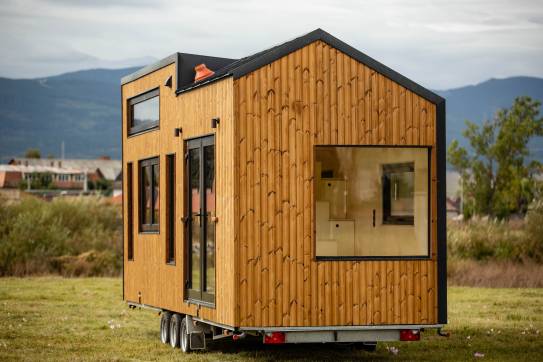New Jersey is the 4th most densely populated state in the United States, with a population of almost 9 million people. It is also one of the wealthiest states in the country, with a median household income of over $70,000.
Then, how do you build affordable housing in an expensive state like New Jersey? In this article, we will explore how to build a tiny house on wheels in New Jersey. Keep reading to learn more!
Is it legal to build a tiny house in New Jersey? It depends on where you plan to put your tiny house. Unfortunately, there are no clear-cut laws regarding tiny houses on wheels (THOWs) in New Jersey.
Tiny houses on wheels are not defined by the state of New Jersey. There is no specific definition of a tiny house on wheels, so you need to consult your local municipality to determine if it’s legal or not.
If you plan to put your tiny house on wheels in a residential area, there are a few things you need to consider:
Parking Permits
If you park your tiny house on wheels in a residential area, then you will have to apply for parking permits from the local authorities. Make sure that your tiny house is parked legally! This will avoid any future legal problems with the local authorities and the community members around you.
Parking in Recreational Areas
If you plan to park your tiny house on wheels in a recreational area like an RV park or campground, then it’s probably fine as long as you follow the RV park’s regulations. However, you need to check with the RV park first before you start building your tiny house on wheels.
Building Permits
If you plan to build a tiny house on wheels in a residential area, then you will need to apply for building permits from the local authorities.
Required Zoning Permits
If you plan to build a tiny house on wheels in a residential area, then you will need zoning permits from the local authorities.
Other Permits
Other permits may be required depending on where and how you plan to build your tiny house on wheels. For example, if your tiny house is located in an area prone to flooding, then you may need flood insurance or floodplain development permits from the local authorities.
These are some of the most common permit requirements for THOWs but it’s best to check with your local municipality for more information regarding your specific situation.
Conclusion
New Jersey is one of the most densely populated states in the United States. It is also one of the wealthiest states in the country, with a median household income of over $70,000. Despite its high population density and high median income, New Jersey has an affordable housing problem.
Fortunately, you can build a tiny house on wheels in New Jersey if you follow local zoning laws and ordinances. You can also build a tiny house for someone else as long as it complies with local zoning laws.


